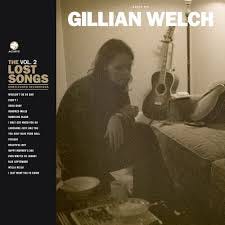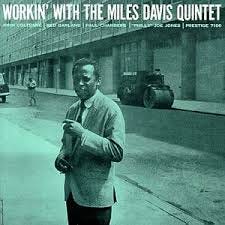Boots On the Ground
(Or, the connection between this year's most interesting archival release and Miles Davis)
This year’s most interesting archival release was largely created over a weekend, live to reel-to-reel tape, to fulfill a publishing contract.
As veteran Americana artist Gillian Welch told No Depression, the 48 songs of Boots No. 2, mostly written between her acclaimed 2001 Time (The Revelator) and 2003’s Soul Journey, were never meant to go onto an album. “I owed them [her publishing company] a bunch of songs. Once they had been turned in, they had served their purpose.”
Until, that is, March of 2020 – when a tornado tore through the studio where Welch and guitarist David Rawlings create, rendering it temporarily unusable. The tapes were found relatively unharmed; their discovery prompted some Marie Kondo-style soul searching, along the lines of “what are we keeping these for?” The duo decided to release them in three installments as Boots No. 2: The Lost Songs. A boxed set version, complete with lyrics, is available starting today.
The songs travel down lanes Welch knows well. There are songs about faith and devotion and what happens when people give up hope. Songs about people running away from demons and songs about people running hellbent toward them. There are late night driving songs and love songs and humble country gospel odes, the kind you might sing in Sunday school.
The Boots No. 2 recordings are simple and graceful sketches, not fully decked-out studio performances. I’d argue that’s one reason they’re so riveting: Welch and Rawlings are just doing what’s necessary to get the ideas down, to make the song structures clear. They’re not concerned with lofty fine points of “art.” This is just business, a working weekend. To satisfy the man.
There’s a long tradition of this, of course. When the second installment dropped, it was clearly picking up where the first one left off – the room ambience was the same, right down to the positioning of the guitars. That sonic continuity, maybe you could call it “unity,” reminded me of Cookin’ by the Miles Davis Quintet. Actually it reminded me of Cookin’, and Workin’, and Steamin’, and Relaxin’.
Recorded in two sessions in May and October of 1956 for Prestige, these are foundational documents of hard bop, recordings that have been studied by musicians and scholars, measure-by-measure, for decades. The inspiration? Simple business. Davis owed Prestige five more records when, after a torrid performance at the 1955 Newport Jazz Festival, he was offered a better deal by Columbia. The two labels brokered a compromise: Columbia could begin releasing new Davis music only after the maverick trumpet player delivered the five albums owed to Prestige.
Davis took his working quintet into Rudy Van Gelder’s New Jersey studio and got busy. Drawing on the band’s existing repertoire of show tunes, ballads, and bebop, he approached the sessions as though playing in a club: There were very few do-overs. The band just played the tunes down, one after another. If a solo wasn’t pure genius from start to finish, too bad. (Turns out there was a lot of pure genius…).
If there was pressure in the room, it doesn’t reach the tape: These assured medium-tempo tunes have an open, easygoing quality. They’re so breezy they transcend the circumstances of their creation: You don’t walk away from the records thinking about the efficient way Davis satisfied his contractual obligation, the daunting number of songs his group documented over those marathon sessions.
Instead, as on Boots No. 2, what’s inescapable is the creativity – and the sense of that creativity happening in real time, with no studio overlay. With literally nothing in the way. The musicians involved in these projects are just gittin’ ‘er done. Working. And steaming through. They’re making roadmaps, not fussy portraiture. The ensuing art may seem a bit rough, lacking the photoshopped gloss of the high-dollar productions, but that’s OK. Along with the rough comes glimpses of guts and sweat and effort, uncut truth from the moment of creation.
Surely you have some thoughts on 2020 music. Share here: echolocator@gmail.com
Please consider subscribing (it’s free!). And…..please spread the word! (This only works via word of mouth!)
Subscribe here.
Thanks!







Interstate parallel sir